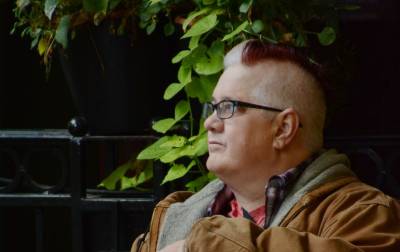
Surgery for Our Communities: Inflicted or Accessed?
Blog Search
This blog post was co-authored by Hayley Gorenberg, Deputy Legal Director, and Paul D. Castillo, Staff Attorney.
Today we filed our opening brief and our response to the federal government’s attempt to dismiss our case on behalf of Dana Zzyym, our intersex client who is locked into this country because the U.S. Department of State refuses to issue them a passport with a gender marker other than either “F” for “female” or “M” for “male.” (Dana uses singular “they,” “them” and “their” gender-neutral pronouns.)
Intersex people are born with physical traits or characteristics that don’t match stereotypes of “male” or “female.” Indeed, many intersex people do have a gender identity that falls into binary categories of “male” or “female,” but many others (like Dana) identify as a third or different gender.
When Dana was born, medical staff initially left the space for “gender” on their birth certificate blank. Later, doctors and Dana’s parents decided to label Dana “male.” Ultimately Dana’s birth certificate was updated to state their gender as “unknown.” (Learn more about Dana’s case here.)
Dana wanted a passport to attend the International Intersex Forum world conference in Mexico City on behalf of the United States affiliate of the worldwide Organization Intersex International (OII-USA). Deprived by the U.S. government of a passport and the right to travel, Dana never got there.
Prime on the agenda of that meeting was the pivotal issue of surgeries on the genitals and reproductive organs of infants and children who are intersex. These surgeries, performed and repeated without success, commonly leave intersex people scarred and sterilized from childhood, for life.
That’s what happened to Dana, and that’s why they and others are advocating to end these painful, invasive and medically unnecessary surgeries (intersex genital mutilation, or “IGM”). But Dana didn’t get a chance to raise their voice in Mexico City, because Dana couldn’t truthfully (under threat of criminal penalty for false statements) check the gender-binary boxes on a bureaucratic form.
While Dana’s experience as a survivor of IGM is tragically common for intersex people, transgender people often face different challenges with respect to surgical intervention.
There is frequently no perceived “ambiguity” when a physician makes a determination of sex based on infant anatomy. But it turns out later that transgender people’s internal sense of their gender does not match what the doctor thought.
Many transgender people — though certainly not all — seek gender-affirming surgeries to align their bodies to their “brain sex,” a key factor in one’s sense of being a particular gender. But transgender people who suffer medically documented, clinical distress about their bodies, distress that can be successfully addressed through established surgical procedures, fight battle after battle to access needed medical care.
The flashpoint of surgery, facing each community in radically divergent ways, lays bare society’s rampant and vicious gender-norming impulses. It is nothing less than a human rights crisis that intersex babies and children are unnecessarily altered for life, without their consent. And ironically, all the while, fully competent and consenting transgender adults face often insurmountable odds securing the surgical treatment they require.
Lambda Legal, its clients and its allies continue to fight misunderstanding, immense prejudice, stigma and shaming of intersex and transgender people. Key to the fight for justice: We must educate and spread the word about diversity of humankind, and fight for dignity, respect, autonomy and the right to thrive for people of all genders and identities.




